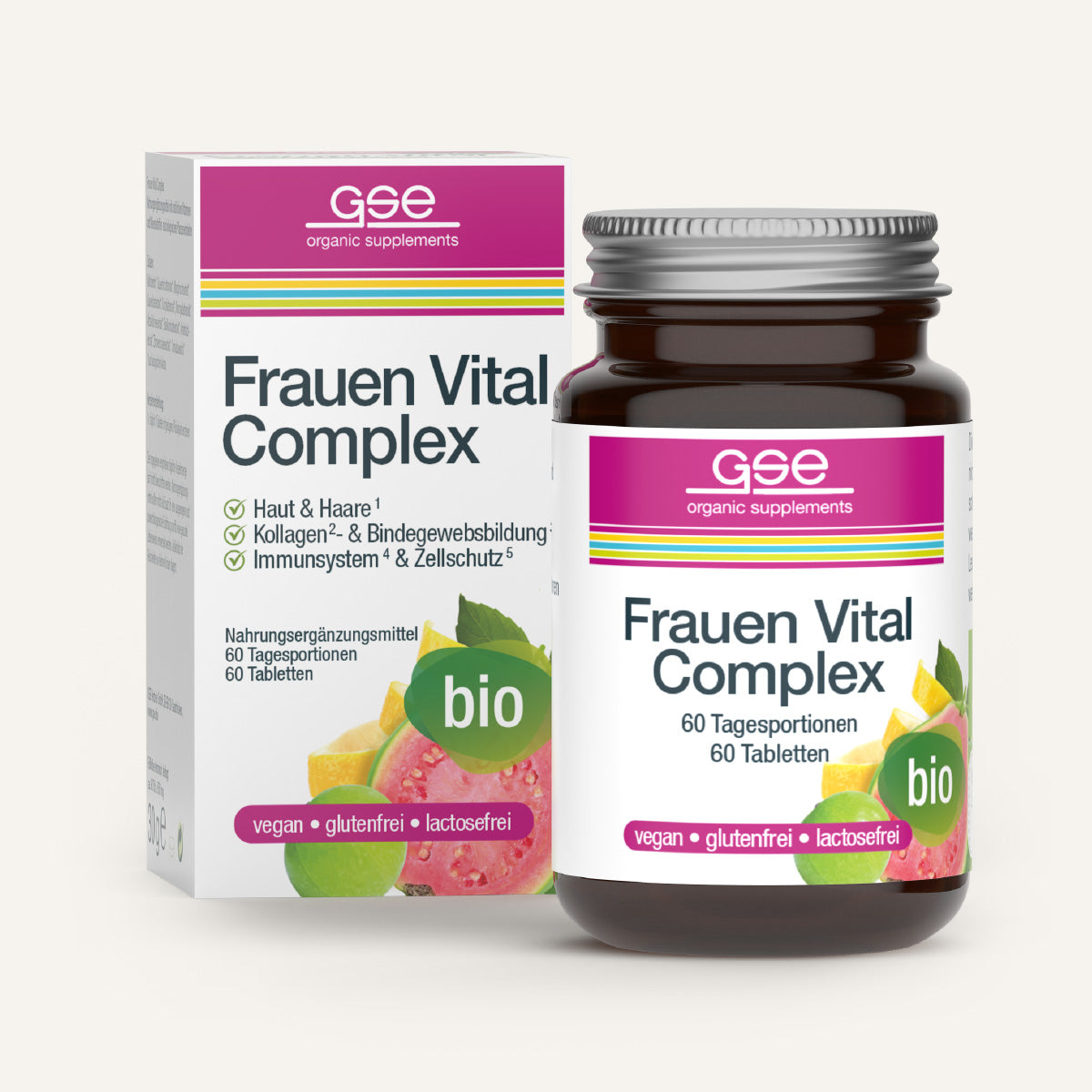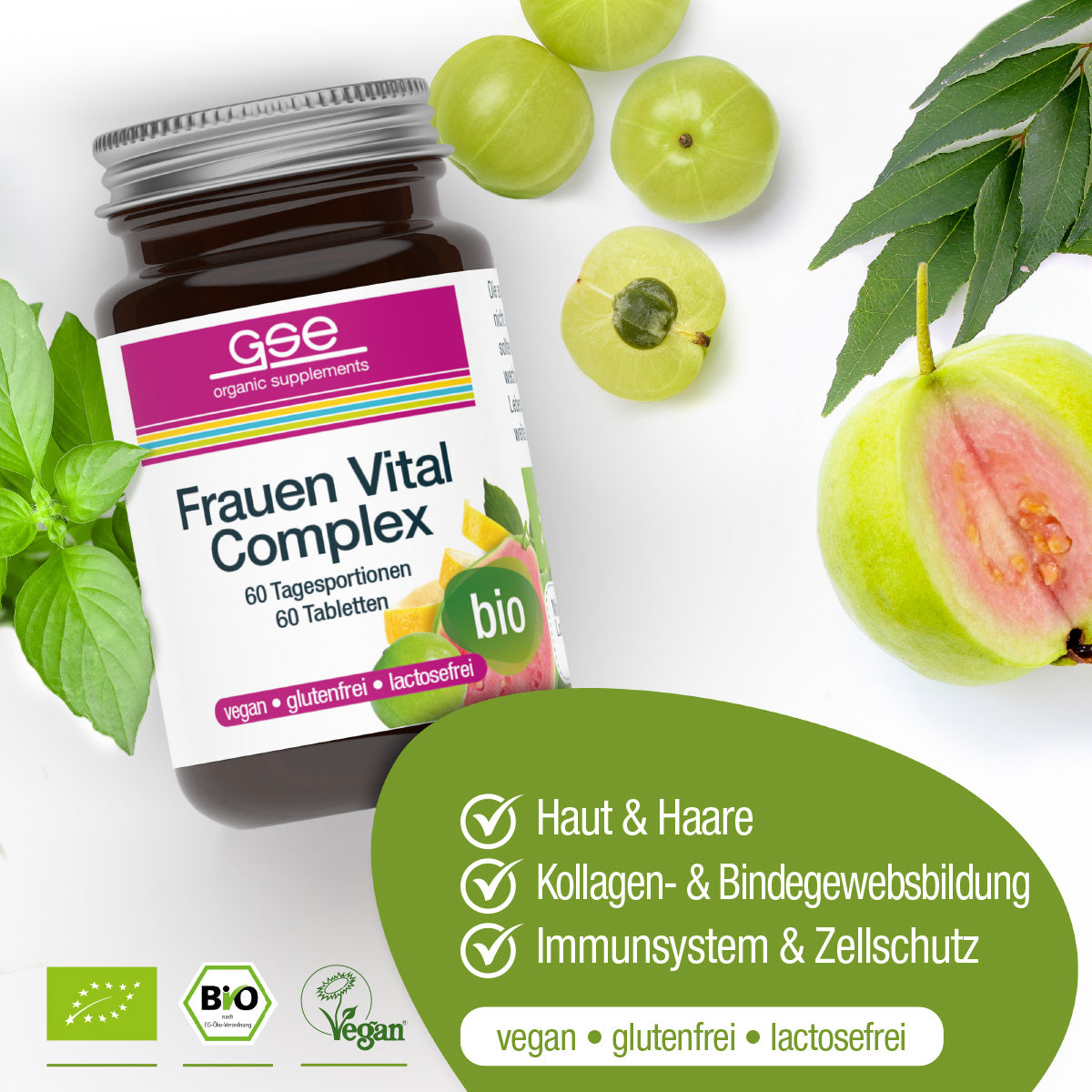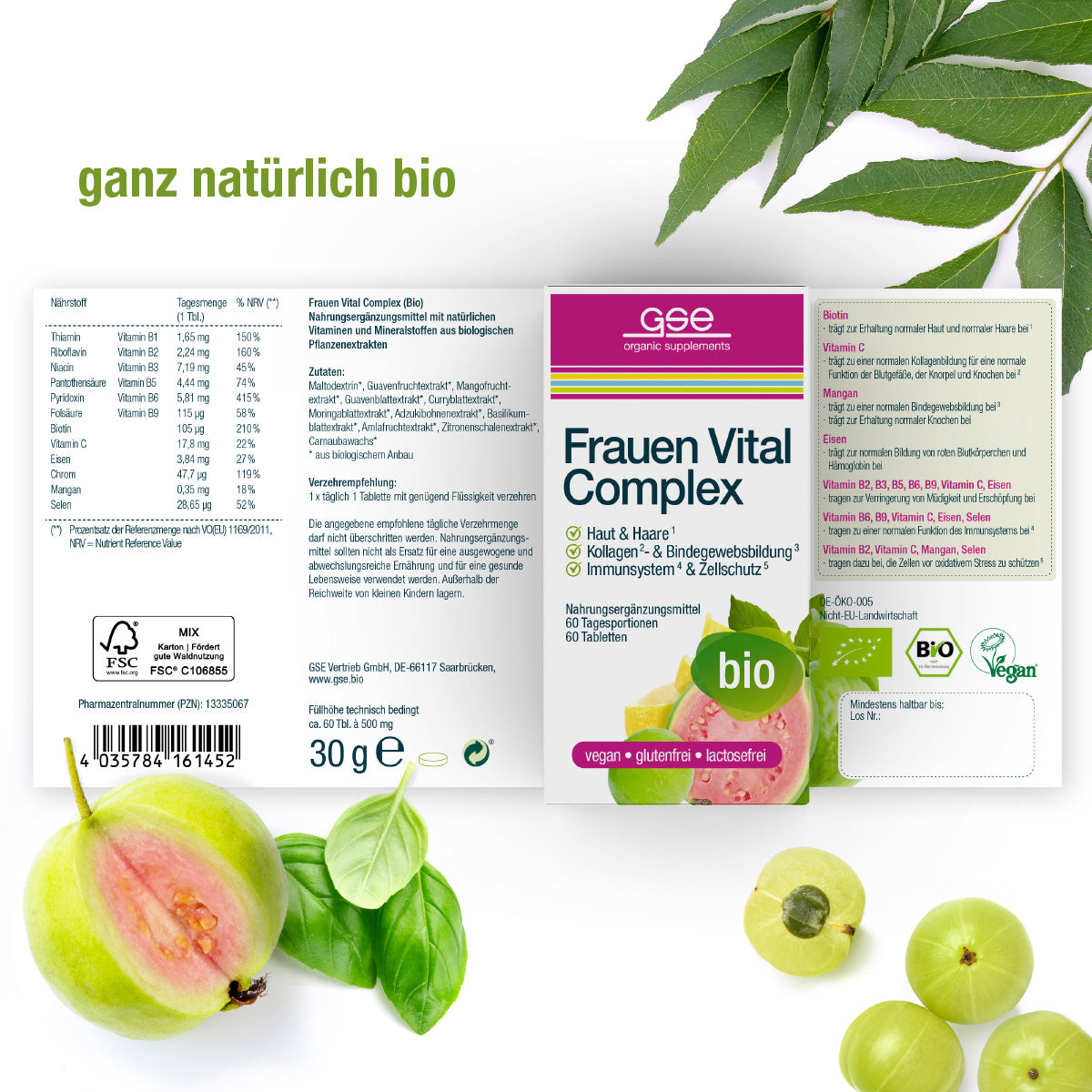Vitamin E
A powerful antioxidant
Some vitamins are known to intercept free radicals in the human body and render them harmless. In addition to vitamins A and C, vitamin E (tocopherol) belongs to this group of antioxidants. Free radicals are aggressive compounds that are produced by chemical reactions, smoking, stress or exposure to high-energy radiation such as sunlight or X-rays. They damage proteins, the structure of cells and DNA in the body.
As vitamin E is not produced by the human body itself, it must be supplied from outside via foods such as vegetable oils, nuts or a dietary supplement.
Vitamin E
- helps to protect the cells from oxidative stress
According to the German Nutrition Society (DGE), the recommended daily intake of vitamin E is 12 to 14 milligrams. Pregnant and breastfeeding women should generally consume slightly more vitamin E than other people. In addition, smokers, people with weakened immune systems or heart disease as well as people in stressful phases of life also need more.
Vitamin E is only produced by plants, but also finds its way into animal foods via the food chain. However, their vitamin E content is significantly lower. Larger amounts of vitamin E are found in vegetable oils such as wheat germ oil, sunflower oil or olive oil as well as in cereal germ.
A vitamin E deficiency rarely occurs with a balanced diet. People who have been eating a very low-fat or one-sided diet for a long time sometimes get too little vitamin E. Other risk factors are certain chronic illnesses in which the absorption of dietary fats via the intestine may be impaired. These include, for example: coeliac disease, chronic pancreatitis, short bowel syndrome after intestinal surgery, Crohn's disease of the small intestine, biliary tract diseases. Premature babies can also be at risk.
We carry the following products with vitamin E












